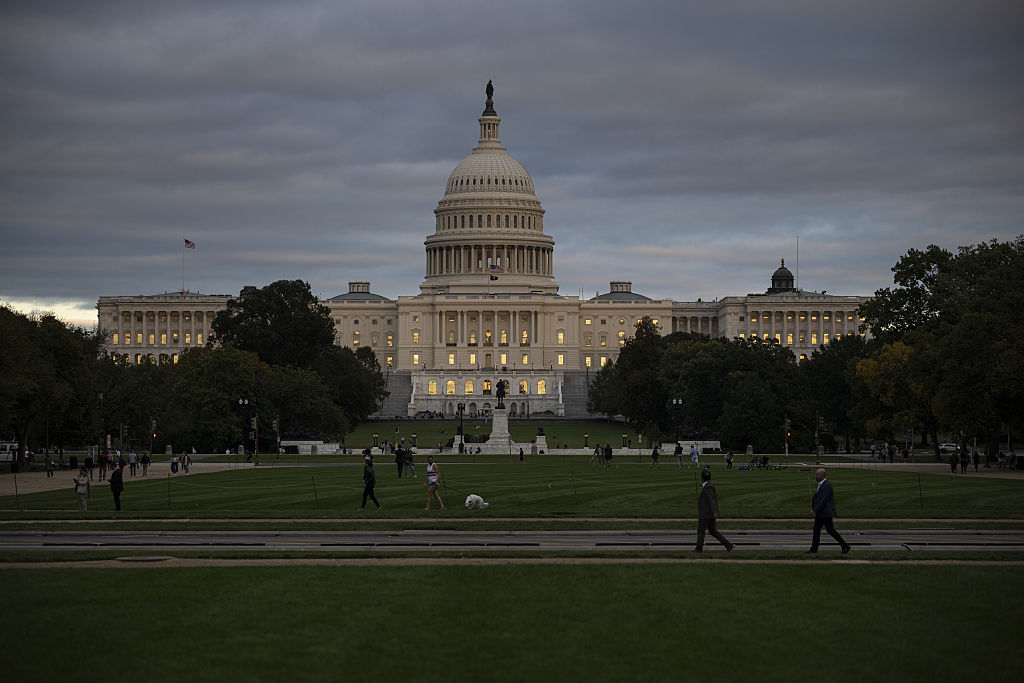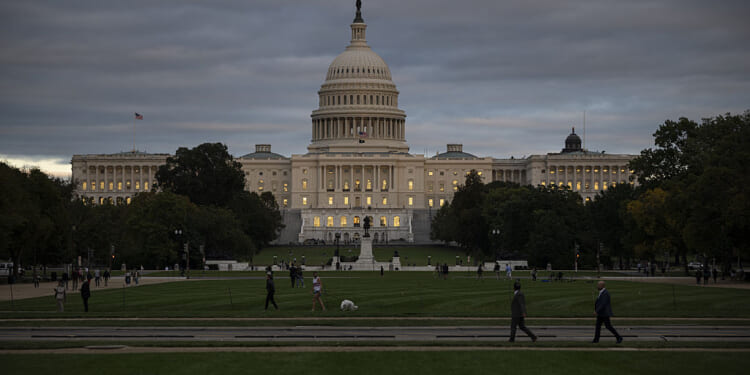
The District of Columbia, where Senators on Tuesday failed to advance the House-passed Republican bill to fund the government, is, ironically, the most affected by the government shutdown, according to WalletHub. It found that DC has the highest share of federal jobs – more than a quarter of all the jobs in the district – and the highest share of federal contract dollars per capita, at more than $50,000.
So numerous DC residents won’t be paid for an extended – and currently undetermined – period of time. Projects are also not getting significant funding while the government is shuttered. More than pay, unfunded programs are a source of pain in a prolonged shutdown. The district also reportedly has the second-highest percentage of residents relying on Supplemental Nutrition Assistance Program (SNAP) benefits to buy food.
Funding for SNAP benefits and operations is supposedly available only through October, according to a letter the acting associate administrator of SNAP, Ronald Ward, sent to state agencies, as reported by several news outlets.
“If the current lapse in appropriations continues,” Ward wrote, “there will be insufficient funds to pay full November SNAP benefits for approximately 42 million individuals across the Nation.”
Blue States Hurt More by Shutdown
Rounding out the top five states most stressed by the shutdown are Hawaii, New Mexico, Alaska, and Maryland. The five least affected states are New Hampshire, Nebraska, Indiana, Iowa, and Minnesota. Chip Lupo, a WalletHub analyst, outlined five key metrics for determining the states suffering the most from the government shutdown:
“The latest government shutdown makes life stressful for people across the U.S., but places like D.C. and Hawaii, where a high percentage of residents work directly for the government or have government contracts, are getting hit the hardest. States with a lot of residents who receive SNAP benefits, such as New Mexico, also could be in a dire situation if money for this vital program runs out before the gridlock ends. Plus, states with real-estate dependent economies are suffering from federal delays in mortgage processing, and states with a lot of national parks may hurt their tourism and revenue by not being able to offer certain park services.”
WalletHub discovered that blue states were hurt more by the shutdown than red states, in a ratio of 24.5 to 26.97, with the lower number representing the greater impact.
Under the lapse in funding, it costs the government roughly $400 million a day to compensate the roughly 750,000 federal employees who could be furloughed each day, according to estimates by the Congressional Budget Office.
At Wednesday’s weekly press briefing, Senate Majority Leader John Thune (R-SD) continued to call on Democrats to pass the clean, 24-page, non-partisan continuing resolution. He lamented that more federal workers will get smaller paychecks as the government shutdown stalemate is prolonged. But Democrats are withholding their votes over extending the enhanced COVID-era Affordable Care Act tax credits.
“There wasn’t a single Republican that voted for Obamacare in the first place,” Thune said, adding:
“And I think most Republicans believe, and I think the data bears this out, that the enhanced subsidies, the COVID-era subsidies, which by the way were set to expire by the Democrats, are a program that is desperately in need of reform. It’s going to cost, over the next 10 years, $40 billion a year. And there are no income limits. There are zero premium policies. There are people who don’t even know they have coverage. The way the program is structured, the government pays, directly subsidizes insurance companies. Insurance companies are incentivized to go out and enroll more people. They auto-enroll people, which is why so many people don’t even know they have coverage.”
More than half of the people enrolled in the marketplace, Thune said, never filed a claim last year. Democrats passed the enhanced tax credits in the American Rescue Plan in 2021, a pandemic relief bill, and extended them with the Inflation Reduction Act of 2022, both times without Republican votes. Meanwhile, President Trump and Republicans have indicated they want to reform the Affordable Care Act.
Wednesday marked the ninth time the Senate failed to pass a continuing resolution. Another vote on is expected on Thursday, day 16 of the shutdown. Thune will reportedly bring to the floor a year-long defense appropriations bill. Democratic leaders have not said how they will vote.
No Kings: No Votes
Another story is percolating among the president’s cabinet – Democrats are beholden to the far left No Kings protesters planning to mobilize on Saturday, October 18.
Transportation Secretary Sean Duffy told Fox News host Maria Bartiromo on Monday, October 13, that the No Kings protesters are puppeteering the Democratic leaders.
“It begs the question: Who’s funding it?” Duffy said, adding:
“Democrats want to wait for a big rally of a No Kings protest when the bottom line is, who is running the show in the Senate? Chuck Schumer’s not running the show. The No Kings protesters or organizers are running the show. Is AOC threatening a primary against Chuck Schumer. Is she running the show?”
What Democrats do next week, after the protests, will perhaps give some indication of how true those allegations are.

















